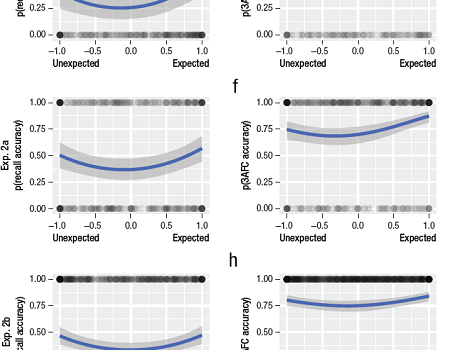It is important to understand the factors that affect what we remember. We often remember surprising events that are not expected based on our prior knowledge. However, we also remember events that conform to our expectations. A recent theory explains these paradoxical effects of prior knowledge (or “schemas”) by assuming that different memory systems support the encoding of expected versus unexpected information. This theory predicts a “U-shaped” function of memory against expectancy. We confirmed this prediction by testing memory for the location of objects in a virtual reality kitchen, in which the expectancy of their locations varied continuously, based on individual ratings. However, a secondary prediction of this theory – that the two ends of the U-shape would be associated with different phenomenological experiences (“recollection” versus “familiarity”) – was not confirmed. This work integrates the psychological literatures on schema, novelty and surprise, but indicates that further theorisation is needed.
The full paper can be read here: https://doi.org/10.1177/09567976221109134

 MRC Cognition and Brain Sciences Unit
MRC Cognition and Brain Sciences Unit


